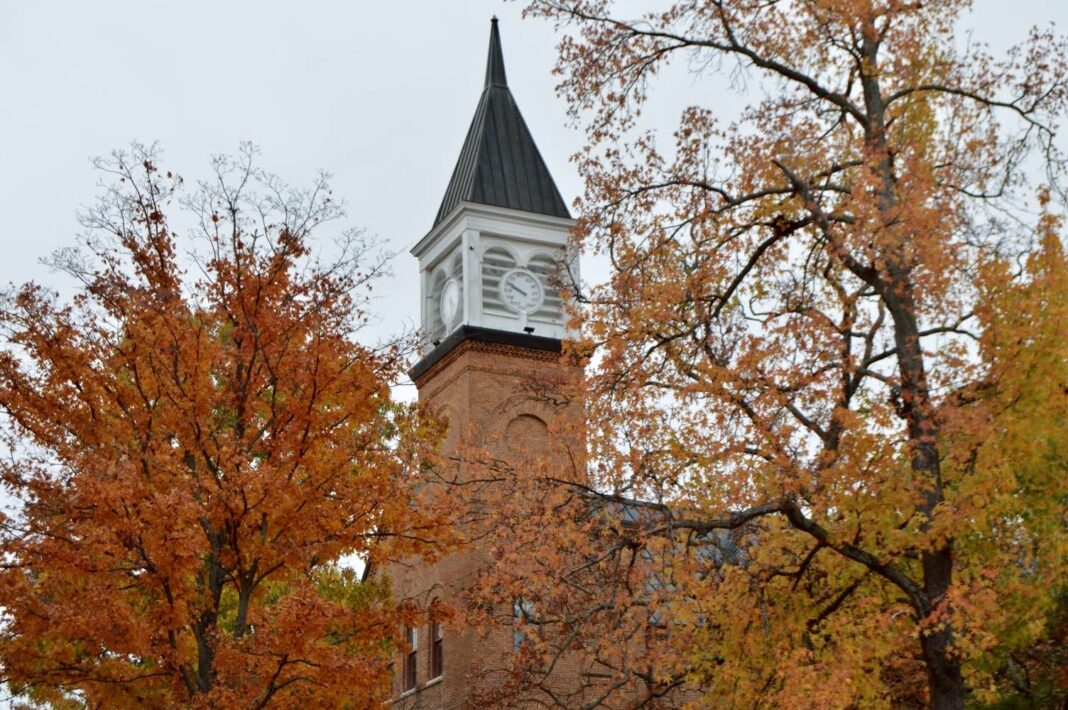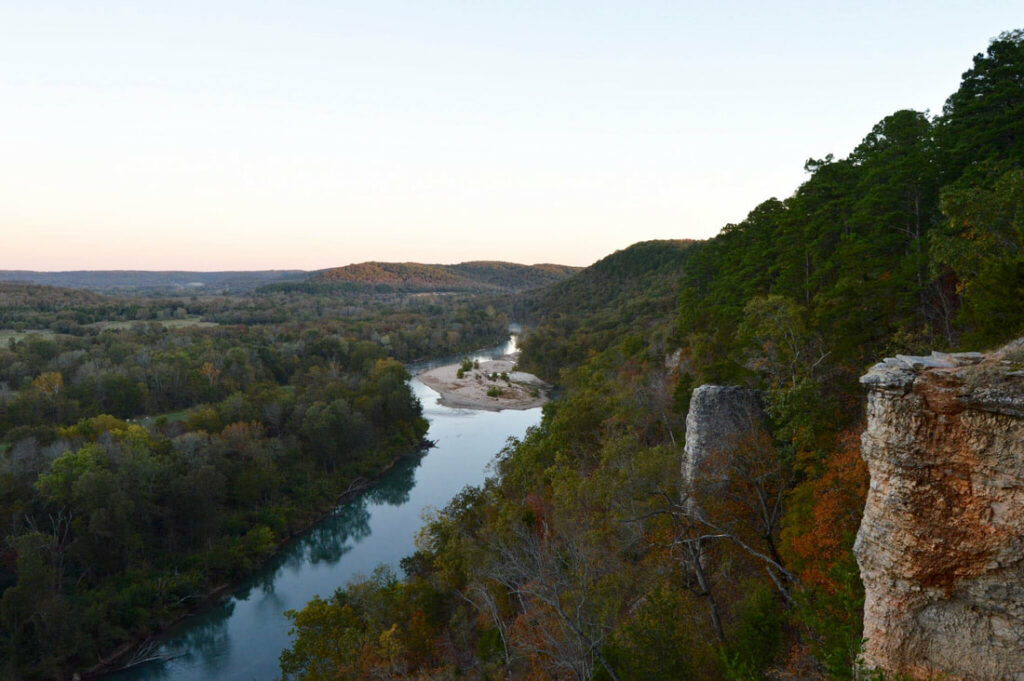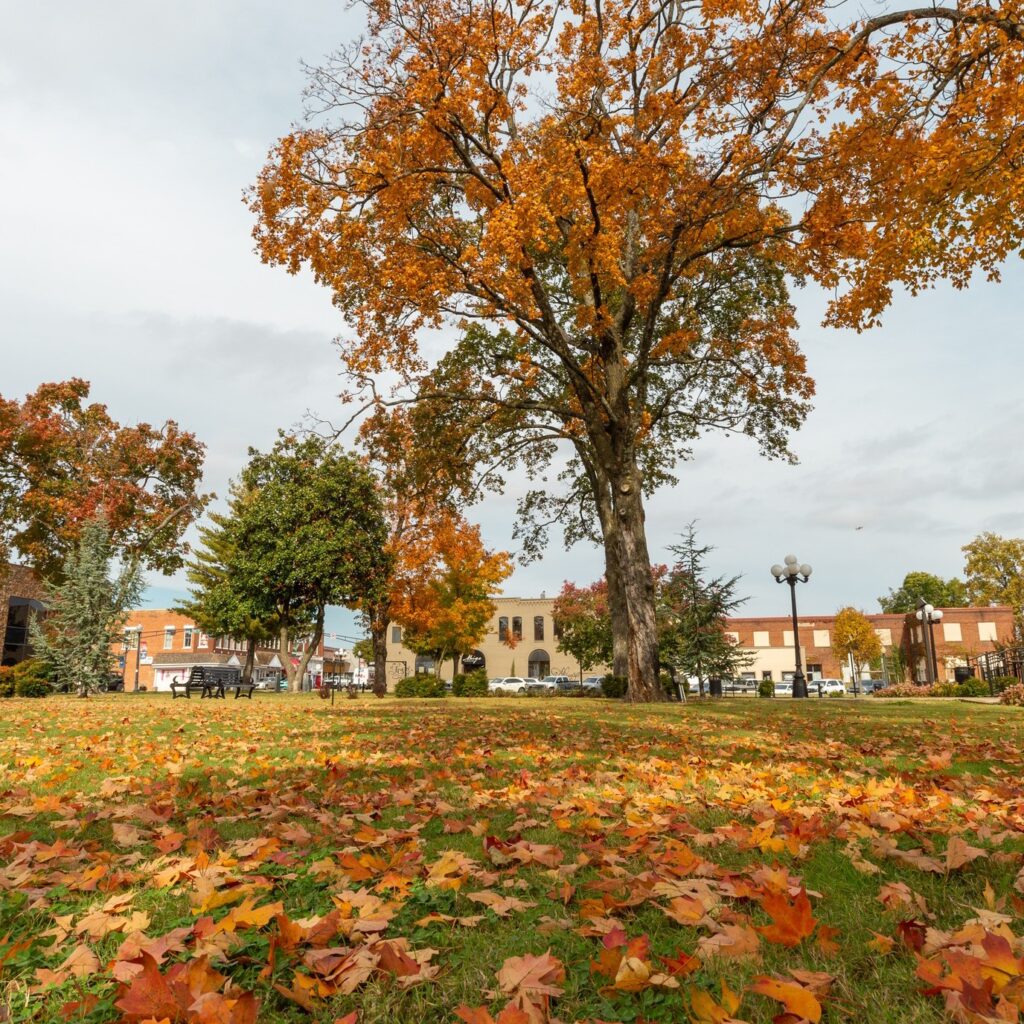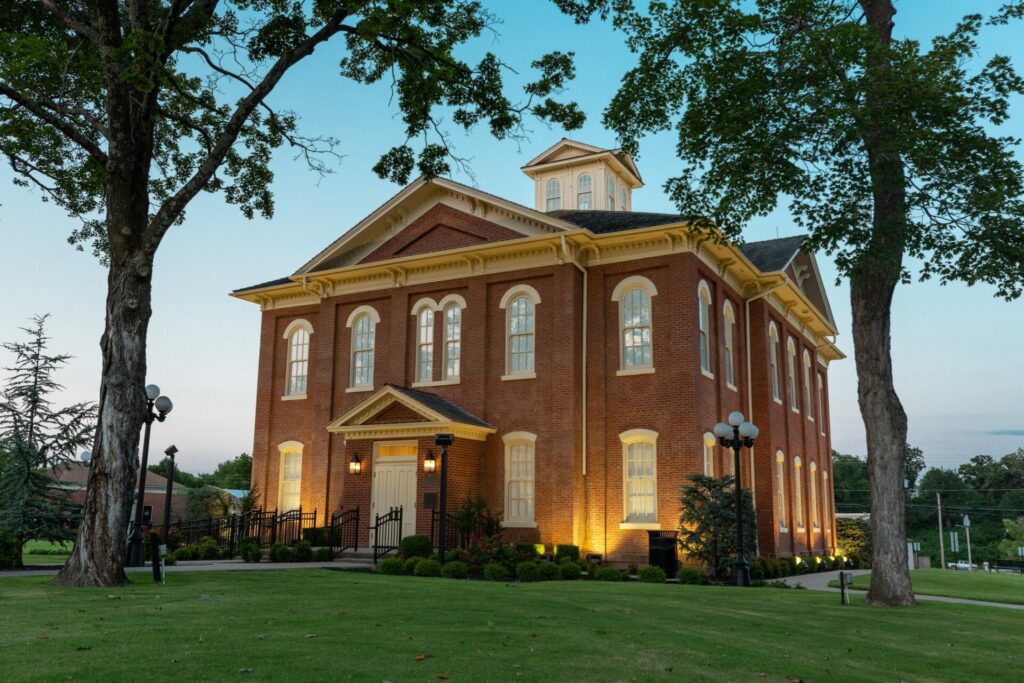Tahlequah, OK. I’m an Oklahoma native. I am not Native American, like many of my friends, neighbors, and acquaintances, but Oklahoma—and specifically Northeast Oklahoma—is my home. I have lived my entire life in a small city called Tahlequah, the capital of the Cherokee Nation. Though I may hate the summer heat, despise the spring pollen, and wish for a longer autumn, there is no other place I could ever call home. I may live in other places, but the rolling foothills of the Ozark mountains, Green Country—this will always be my home.
I am grateful for a family line that has roots in a place. It is something that is increasingly rare in our atomized and individualistic age. My father’s family and mother’s family both, for generations, have lived in Oklahoma. My paternal grandparents have owned a piece of land here in Cherokee county for decades, and so much of my childhood happened on those acres. Having roots in a place gives a context for a life. A place is not simply a pretty backdrop for personal experience, it’s not meant to just be a colorful setting where you can act out your individual desires. A place, especially one where you have your own family history, gives you shoulders to stand on.
Throughout my youth, I was surrounded by moans and cries of my classmates expressing that they “just can’t wait to get out of this little town.” This is a common sentiment in small town America of the 21st century, though I’ve never quite understood it. Those around me talked as if they had big dreams, but they never bothered to define them. They wanted to move to New York, live in L.A., get out of here—but they rarely had goals beyond a simple move. To me, aspirations should revolve around accomplishments, not location.
Tahlequah is an attractive town, and the place I inhabit has shaped me. It shapes everyone, whether they want to admit it or not. Tahlequah is peaceful, beautiful, and quiet. Like many small towns, especially as you venture westward into America’s former frontier, it is full of parks and is centered on a beautiful brick downtown street built over a century ago. This street is populated with local stores and businesses.
We are nestled in the foothills of the Ozark mountains, so unlike much of Western Oklahoma, Eastern Oklahoma is not flat at all. It is hilly, marvelously green in the spring and summer, with abundant hiking, rivers, lakes, and trails. Trees surround everything, and the further you go eastward into Arkansas and Missouri, the more potent it gets.
Our location gave me a dual sense of belonging, one that shaped my interests and loves as a child and still fascinates me to this day. Oklahoma is far enough West that we have a strong heritage of cowboys and outlaws, our own famous gunslingers and lawmen of the American West, and a strong connection to that frontier history. At the same time, we’re distinctly southern—especially here in the Eastern portion of the state, connected to the Ozark Mountains and the outskirts of Dixie. As a child, we would vacation East, deeper into the Ozarks to Branson, Missouri (affectionately referred to by some as “the Cracker Barrel of towns”) and I was fascinated by the history of groups such as the Bald Knobbers, stories of early pioneer trappers and loggers, and tales of southern outlaws and American heritage.
Tahlequah, like many small towns, has a seemingly insignificant claim to fame that the town clings to and builds upon. For us, it is that Tahlequah and the surrounding area served as the setting for the classic 1961 Wilson Rawls novel Where the Red Fern Grows. When the novel was adapted into a film in 1974, production took place in Tahlequah, and plenty of the locations used in the film look almost identical today.
The city puts on a “Red Fern Festival” every spring, where thousands of people, vendors, performers, and tourists come into the town to celebrate this very specific heritage, and the larger area heritage in general. It is a lighthearted time, and part of what makes the city unique. But it is also underappreciated by the young men and women who frown upon their hometown as if it is something to be ashamed of. Too many young boys and girls look at a small town like ours as a backwater place, desperately behind the times. They want to move somewhere big, somewhere with greater opportunity—greater opportunity for good, or evil.
One of these students desperate to make a splash in the wider world was a few years older than me. I’ll call him “Harrison.” Harrison was a theater student, a loud and bubbly personality, and a performer. He wanted to perform for a living—to sing, dance, and act—and he wanted people to look at him and pay attention to him. He never quite got out for long, and like so many others ended up back in Tahlequah (he may not have ever managed to leave) before long. He began teaching music classes at local schools and substituting at the high school from time to time. When I was a senior in high school, he was an assistant to the choir director, and was consistently invested in the lives of his students. Until three years ago, when he was busted for child pornography.
It was a horrific week in our town, and specifically in the public school system that he had been actively involved in for years. One of the state police officers who investigated this case said it was one of the worst he had ever seen. I will spare the details here, but reading the report of his arrest and the statements regarding the investigation made me sick to my stomach. The statements that Harrison himself had made in the past about what kinds of things “turned him on,” the text messages they found on his phone, the sheer staggering amount of porn they seized, was overwhelming. Even now, to remember some of the specifics of the case can ruin my day.
At the time, the town was in uproar. People wanted to hunt him down, there were calls for the death penalty or for castration. The utter horror surrounding the case was intense. Harrison got off far too easy. Though he was sentenced to prison, the sentence he received was only a fraction of the time he deserved. To think I had known this man for years, worked alongside him or under him, shaken his hand, all the while he was involved in one of the most heinous acts someone can be involved in—rage was the proper response to such a thing. And this rage with which our town responded is the encouraging thing about the entire episode, and something that made my love of my city even stronger.
In larger urban areas, in large cities made up of strangers, cases like this are far more common. In New York City in 2014, over seventy people were arrested on this charge in a single sting operation. Though it certainly made the news, it had no effect on the larger city and community of over eight million people. Why would it? Crime of this magnitude, though horrifying, is nothing to write home about in a major urban area. And it certainly does not make one feel any closer to their neighbors.
In a small town like Tahlequah, however, something like this unites the community. People come together to condemn the action, to execute justice, to check on the safety of any victims and do everything possible to ensure the tragedy cannot go any further. My town rallied in disgust at the discovery of a predator in our midst.
Even more encouraging was the fact that Harrison was caught because of an anonymous tip from someone who knew him. Those close enough to see what was happening did not feel they could stand idly by while the community was hurt. This is not always the case in small towns, and plenty of evil men get away with evil deeds—but the community surrounding it matters. When something like this happens in an area where everyone is a stranger, it is hardly news. Though there is outrage, and justice is served, the outrage behaves more as a distant condemnation than a close wound. When it happens in a community that families have lived in and built for generations, where everyone knows everyone else and half the town knows the perpetrator, it rocks the town to its core.
America today has a roots problem. The vast majority of folks, once they turn eighteen, will move hundreds or thousands of miles away from home, pursuing a career, fame, or fortune. There is nothing wrong with exploring or moving to a place where you have better opportunities. I am not condemning or criticizing anyone for moving far away from home—this can be a wonderful and necessary thing. But when it happens on the scale it is happening in America today, when most people do not have roots further back than a single generation in any given place, it creates a sense of placelessness. It creates an environment where a community cannot feel the collective pain of great evil.
Unlike many I grew up with, I’m proud to be an Oklahoman. I’m proud to have a family heritage that is tied to a place and has roots in a community. I’m proud of a community, however flawed, that has an identity and a passion for keeping itself as honest and pure as possible. I’m proud to know this country like the back of my hand, and to feel at home both in the American South and the American West. In high school, I also used to have dreams of moving to L.A. or Nashville to pursue a career in songwriting, to try and wiggle my way into the music industry. Now I’m more and more grateful I never did that at eighteen years old.
Someday I may move across this country, or even out of it. Someday I may not be nestled here in the foothills of the Ozarks any longer—but it will not be out of a disdain for my homeland. It will be out of a desire to see more, to explore, to love even more places. Bilbo Baggins had one of the greatest adventures, the most exciting quests he could have ever asked for. But when it was over, and when the task was done, he returned to the Shire, where his people had lived and cultivated deep community for hundreds of years. Do not despise your Shire. Leave it if need be, but remember it fondly, and be grateful for it.
All images via Tour Tahlequah
















You are obviously very blessed. Thank you for sharing this.
Gorgeous piece! Thank you!
Thank you. This is excellent.
Comments are closed.